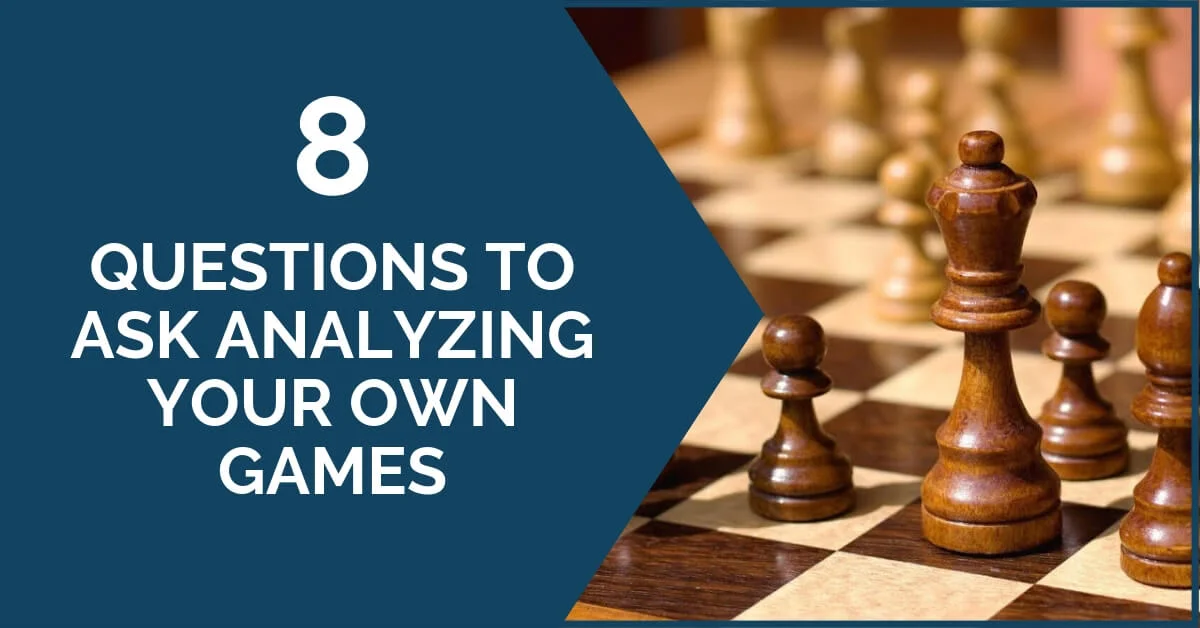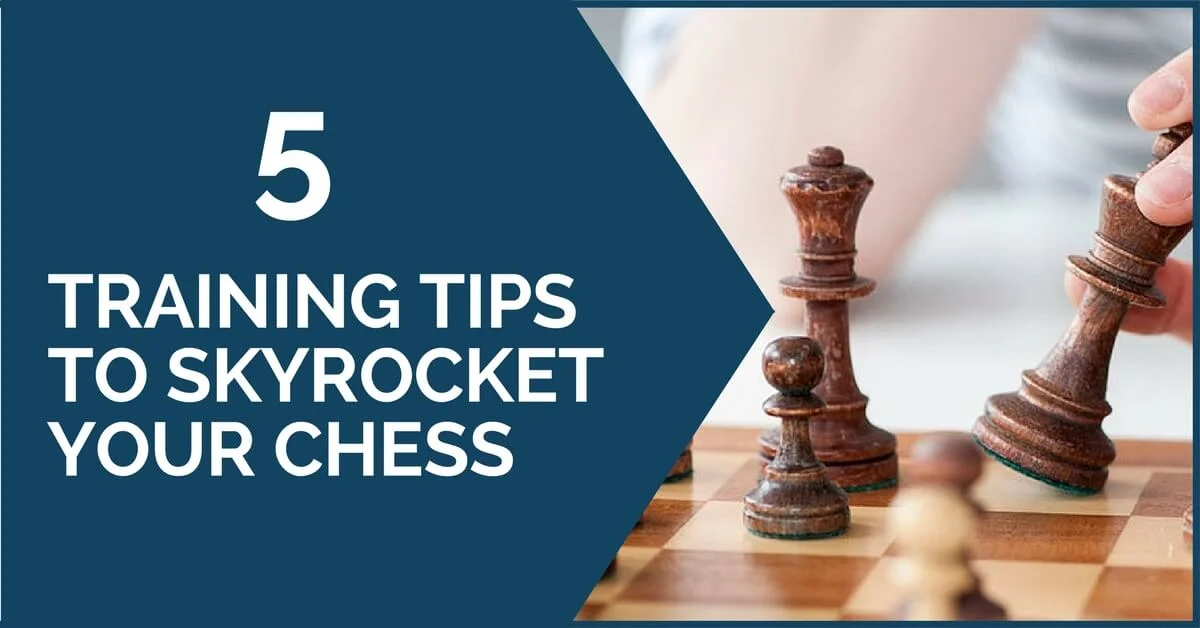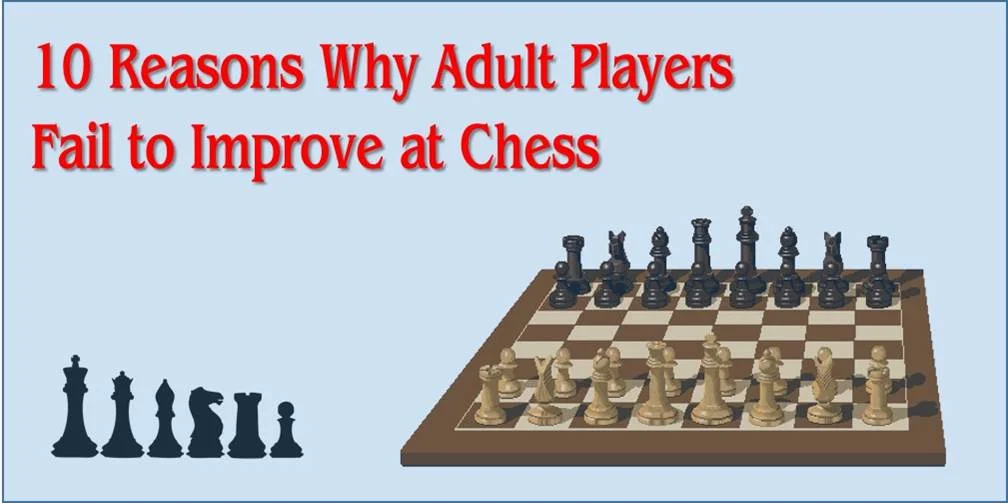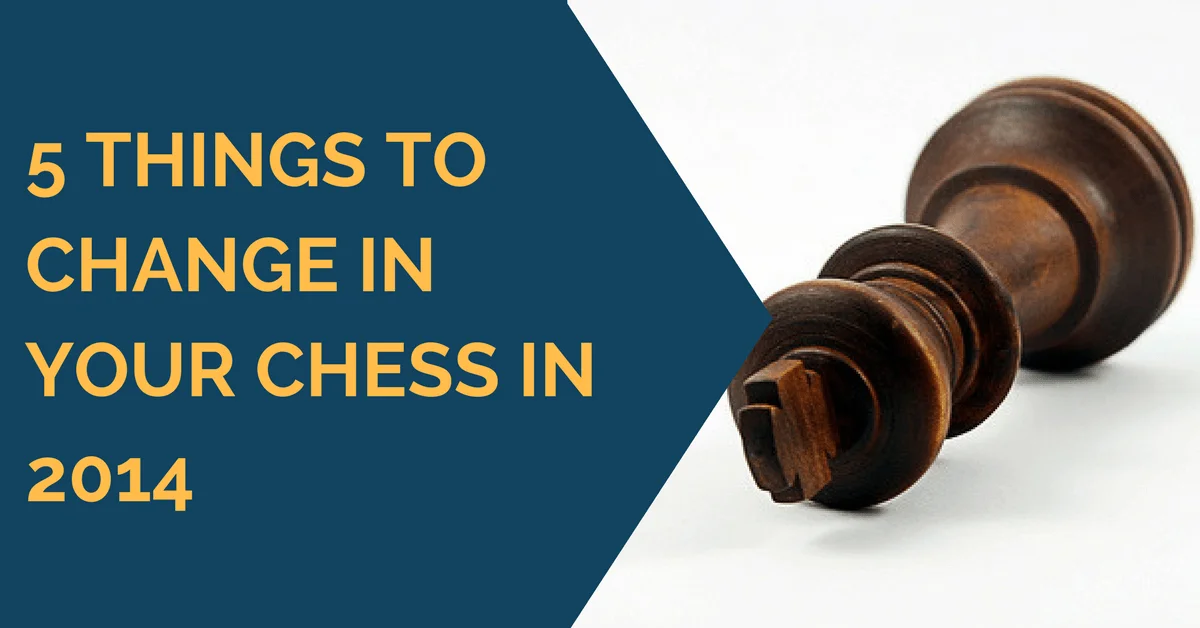8 Questions to Ask Analyzing Your Own Games

Analyzing Your Own Games: It is common knowledge that the key to making progress in chess is the consistent and deep analysis of your own games. Once you have learned the most typical nuances of positional play and tactics, it is worth finding out what you miss in your own practice. It is necessary to try to get to the source of your mistakes and learn more about your own strengths and weaknesses.
Analyzing your own games does not mean running the engine on the key moments to see what you have missed. For example, let us see what happens when you do not look on your own first and run the engine over the game. Naturally, the engine will show you some good moves, and you will ‘believe’ that you would have found these moves but you would only be fooling yourself.
If we look from an active point of view, doing is more effective than looking. So we suggest you go over the game by yourself or with a partner or ideally with your opponent right after the game was played and analyze what you thought, what you feared, what you could have played, and so on. Only later you should check with the engine and compare your impressions with what the machine suggests.
Simplified: you need to understand what happened and look at the big picture.
Since we are aware that this is still fuzzy for beginners who want to analyze their games but don’t know exactly how we have elaborated a list of questions that should be answered after you have analyzed your own game. Try to be a critic of yourself, within the constructive limits.
1. Analyzing Your Own Games – How did I play the opening?
Openings are important.
This phase of the game cannot be avoided so you should learn how to play it at a reasonable level.
You have to learn if the opening suits your style in case it was your first time, how many moves you knew by heart, etc. Look if there was any move you did not understand from your opponent, etc. Investigate every little aspect of the opening and write notes.
2. The middle game
Did you understand how your position had to be played?
Sometimes we go out well in a position but we don’t understand how the pieces go. This causes us to start moving our pieces to the wrong squares and doing plans that don’t meet the demands of the position. Make sure to pay attention to elements like pawn structures, plans of attack for both sides, typical ideas, and so on.
3. Analyzing Your Own Games – Key moments
This is very important. It is important to be able to select the key moments of the game. This means the moment when your decisions have a direct influence on the outcome of the game or change the course of the game drastically.
4. Your tactical radar
Was there any possible tactic for you (or your opponent) that you did not see? Find out the reasons.
5. Analyzing Your Own Games – Calculation
It is useful to check the moves that cost you the most with the engine and see if your calculations were accurate. This can be done regardless of the moment of the game, on any move that you needed to calculate.
6. Endgame
Analyzing the endgames is a great way to learn them. It is important to draw some conclusions and annotate some concepts that would help you find better moves in similar situations.
7. Analyzing Your Own Games – Clock management
Time is an important part of the game. See what decisions you spent more and less time on and if it is possible to improve on that.
8. Errors catalog
Finally write down all the errors made – opening, middlegame, calculation, positional understanding, and so on. The idea of this is that you will know exactly what part of your chess you need to improve.
If you analyze your game and you cannot at least draw some conclusions about these 8 factors then it is possible that you are not doing it in the most efficient way. We hope this guideline serves you to correct this and improve your home training.
We also recommend reviewing these articles:










Comments: